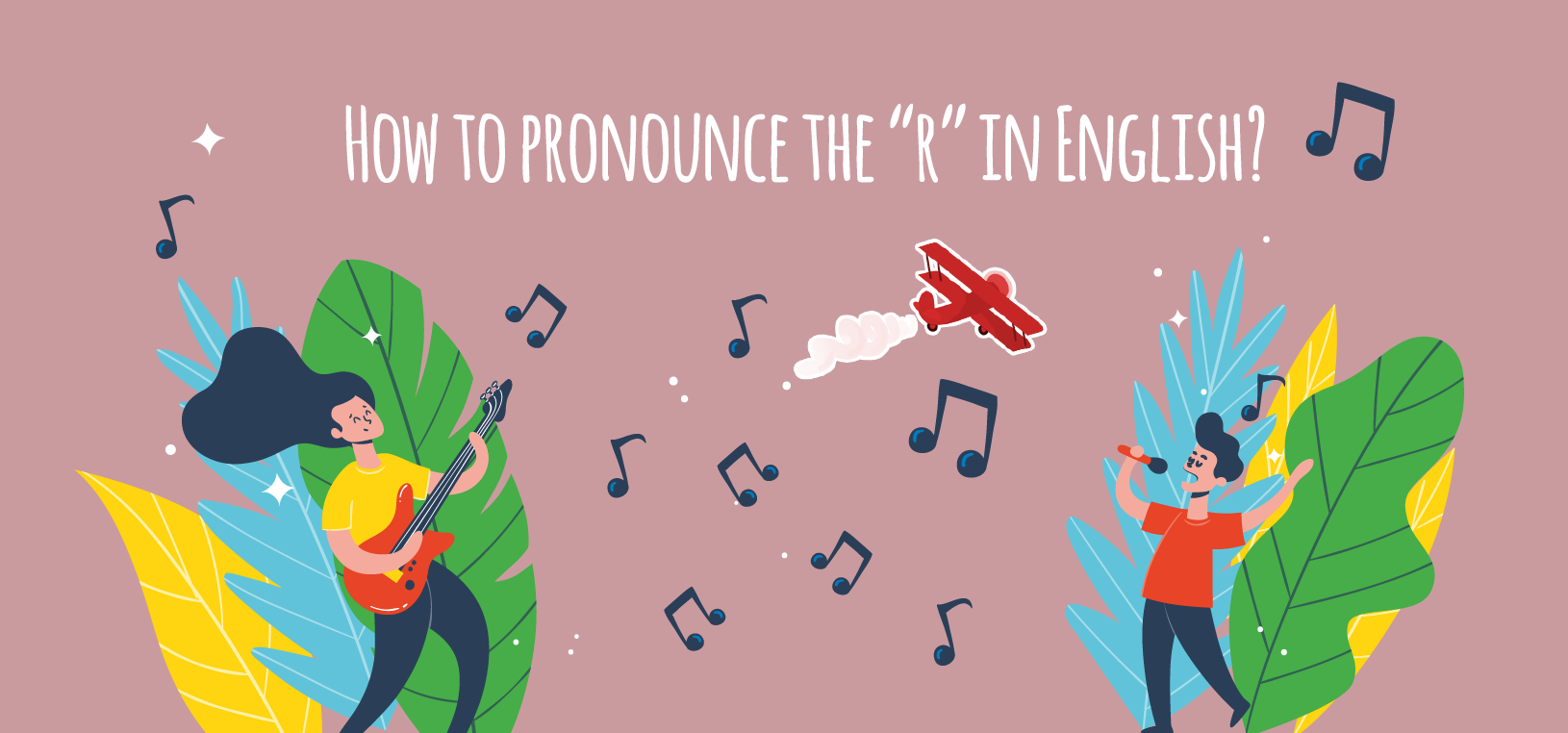😛 How to pronounce the “r” in English?

How to pronounce the “r” in English?
Of all the letters in the alphabet, the “R” is undoubtedly one of the most problematic for the language student, because among other things, its pronunciation is different in many languages. In this post we will try to explain to you how it is pronounced both in English in England and in North America.
Is it pronounced the same in all languages?
Of course not:
- The French R is pronounced in the throat.
- The Spanish R is pronounced at the front of the mouth.
- The English R is pronounced in the middle of the mouth
And it is evident that also in the same language there can be variants when pronouncing the “r” and this depends on the position it has in the word.
English pronunciation
In English, the “r” is pronounced in a single way, whether it is at the beginning, at the end, together with a vowel, or joined to a consonant, or if it is a double “r”. To have a more exact idea of its pronunciation, we can say that it has the same sound as the word ‘ARE’
How to pronounce the “r” in American English?
If you are one of those who have difficulties with the pronunciation of the “r”, you should try the following :
- Make your lips stiffen in the same way that you do to produce a hiss with your tongue.
- The tip of the tongue should remain without touching anything, while the sides or sides of the tongue will touch the molars.
- Now with your lips stiff and your tongue somewhat, not much, withdrawn, you try to say: “aarrr” several times and with much exaggeration.
Exercise with the following words:
- Thirsty – hard – hungry
- Right – careful – are
- Wrong – girl – true
- Ready – early – far
- Year – tired – afraid
It will probably be somewhat difficult at first , but don’t give up.
The “r” in British English
So for the “r” to sound, you have to do it with your lips open and relaxed and the tip of the tongue curved towards the upper gums, even if it does not touch it. And this is an expressed sound. This is how you pronounce r
When to pronounce ‘r’
What is striking about the pronunciation of the letter “r” in British English is not so much its way of pronouncing it, what stands out the most is that very often, the “r” is silent, it is not pronounced in words.
- Here are some examples where the sound “r” is not pronounced: here, far, start, were, work, her, perfect, near, hair, where, water, wonder (aquí, lejos, comienzo, estaban, trabajo, ella, perfecto, cerca, cabello, dónde, agua, maravilla)…
The resulting list is quite long. But, what may be more interesting to you is knowing that only the “r” sound is pronounced when it is written in front of a vowel . So, in the word remember , we pronounce the letter “r” that appears at the beginning of the word, but we do not pronounce the “r” at the end of the word.
You may also have noticed that there are some words that appear in the previous list where the “r” comes before a vowel, like here, and were, the important thing to note with these words is that the letter “r” appears towards the end of the word and that the sound “e” is not pronounced.
How to pronounce “r”:
The “r” is a voiced consonant, which means that air passes over the vocal cords when the sound is produced. The sound produced is mainly due to the position of the tongue. The tongue retracts into the mouth (some people roll it back and get a near perfect sound, you could try that). The tongue is widened making the edges touch the upper back teeth, the tip of the tongue touches the middle of the roof of the mouth. If you make the sound in slow motion, it will sound a bit like a dog growl. The tongue should not flap, hitting the palate (roof of the mouth) when it emits the sound; if you do, you are doing it incorrectly and it will not sound properly.
In summary
We repeat that the phonetics of Spanish and English are very different . While the Spanish language has a direct relationship between what is written and how it is pronounced, that is, each letter represents a sound that varies on very few occasions. However, the phonetics of English does not turn out to be like that, on the contrary, there is a lot of variation between how it is written and how it is pronounced.
Now, as we have seen about the characteristics of the “r” sound in English, in a way for a Spanish speaker it should not be so difficult to pronounce it , since it is the same sound that we produce when we say letter. In other words, it is the simple sound of the “ere” in which there is almost no vibration .
Finally, and as a practical advice, we will tell you that you should consider recording yourself while you speak or read a text, and then be able to hear yourself repeatedly and thus determine how natural you sound in English and, if not, have the opportunity to rectify your mistakes. And remember that it is not only about the pronunciation of the words, but we must also take care of the intonation, which is something like the ‘music’ of English.
Do not forget! If you are thinking of obtaining an official degree, here we leave you the number 1 online platform.



medical disposable is prevalent up